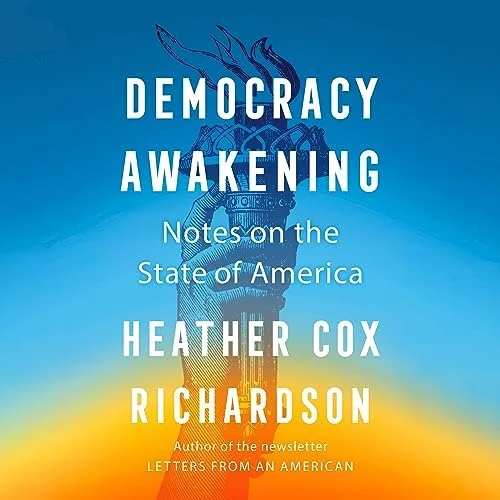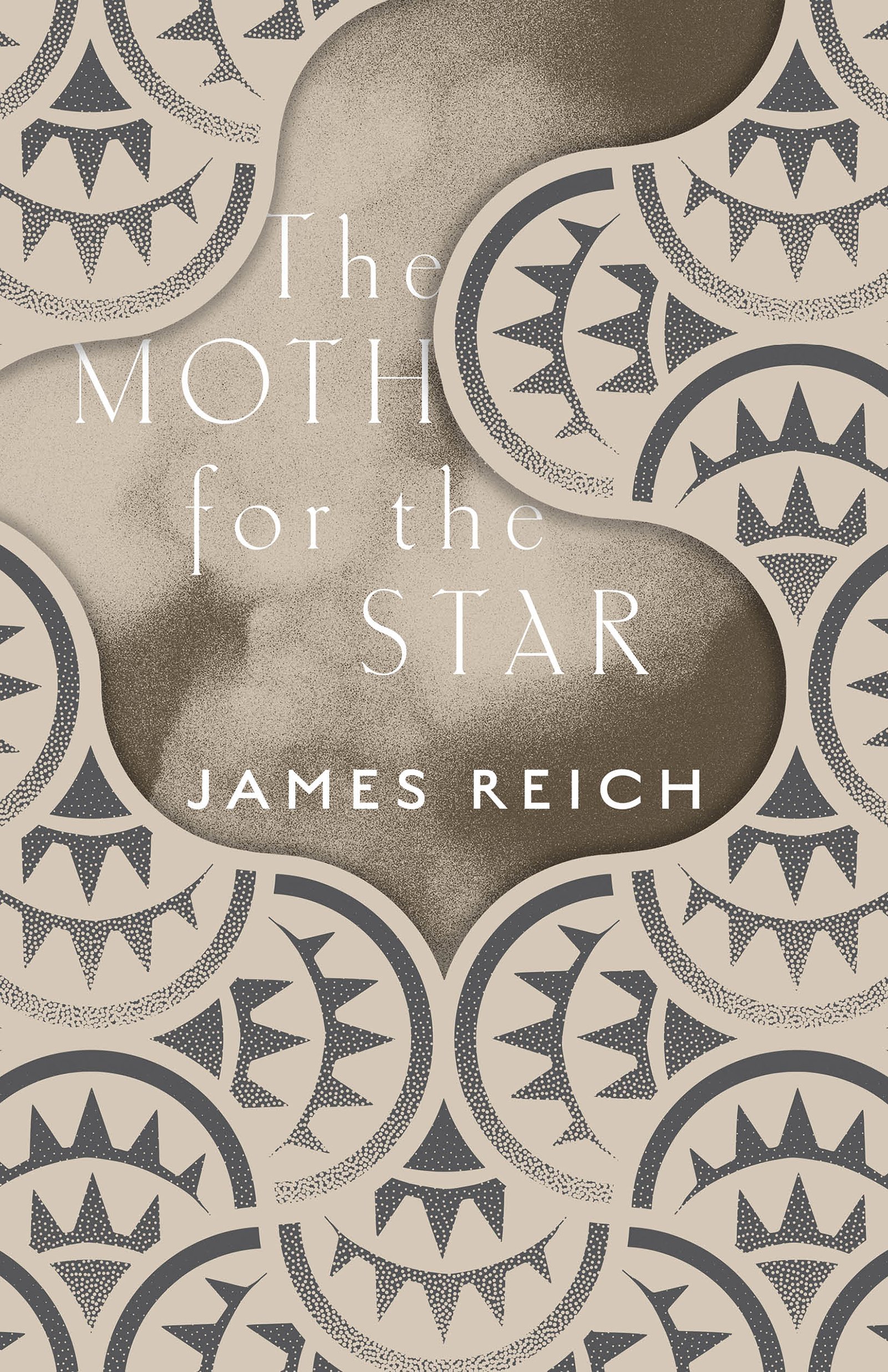REVIEW: Could America Survive the Trump Presidency, Part II?
/Democracy Awakening: Notes on the State of America
By Heather Cox Richardson
Viking 304 pp.
By Jim Swearingen
Unparalleled. Unorthodox. Unprecedented. Uncharted waters.
A litany of tiresome adjectives for “novel” have turned cliche in describing the impolitic actions of Donald Trump and the once grand party that he has razed in his own image. It rests with the best of American historians to remind us otherwise. But for a few aberrant details, we have been here before, striving to realize the promises of liberty, equality, and opportunity for every American against the perpetual scheming of a repressive plutocracy.
In her new book, Democracy Awakening, Heather Cox Richardson tracks the Republican Party’s more than 60-year manipulation of images and language that has warped social reality, obfuscated factual argumentation, and slandered truthful accounts of current events. She documents an escalating assault on shared political experience that undermines any chance of compromise or agreement across party lines. Richardson nimbly ties the abuses of the Trump era to an anti-democratic –- read American fascist – tradition that stretches from antebellum Southern Democrats through abuses of power by Nixon, Reagan, and Mitch McConnell that helped undermine representative government.
The Boston College professor of history and “Now and Then” podcast co-host also compiles and organizes the most corrupt instances of Trump villainy into an uncomfortably familiar walk down his Macbethian nightmare alley, a delirium tremens of political ruination. The historical backdrop for this American brand of fascism is the opportunistic political schemes of legislators who have exercised disproportionate political power, far in excess of their numbers.
Though Richardson chose the more lofty title Democracy Awakening for her status report on the American political order, she might just as appropriately have titled it “The Same Old Serpent,” Abraham Lincoln’s metaphor for the continual, autocratic attempts to control common people whether by a feudal king, by the antebellum slaveholder class, or in more recent times, by industrialists and corporations. As she did in her 2014 history of the Republican Party, To Make Men Free, Richardson traces the historical conflict between the promises of equality and liberty embedded in the Declaration of Independence and the protection of private property embraced in the Constitution. For a new nation sustained in no small measure by chattel slavery, those two documents were destined to produce an ideological, and ultimately a military, clash.
At its core, the book explores what it means in a political sense to be American, and conversely, what it means to be un-American. The freedom to excel by virtue of one’s industry and equality before the law seems to be part of the American DNA. Yet the secessionists, Dixiecrats, MAGA-Republicans, and all the iterations in between, have sided with the Constitution’s 5th Amendment right to own property, but not with Constitution’s egalitarian guarantees. Given this rejectionist approach to an important part of this founding document, the term “conservative” ill suits them.
We are reckoning with a movement that has never accepted democracy as our fundamental system of government except when, and only when, it produced the plutocratic policies that they embraced, such as the extension of slavery, the elimination of taxation, the suspension of business regulations, and the rejection of universal suffrage.
Since the Civil War and the enactment of egalitarian policies reinforcing individual opportunity through interstate infrastructure, state universities, voting rights, and land grants funded through income taxation, opponents of such robust Federalism have traditionally attacked its redistribution of wealth as socialism, even going so far as to sabotage the economy deliberately, then assign blame to populist policies for the economic consequences. As Richardson documents, time and time again, their loyalty to the United States as a political venture rests on the belief that the haves should rule over the have-nots, that the Founders were wrong to embrace human equality.
For over 200 years, these American autocrats have peddled various alarmist myths, most notably the idea of racial extinctionism, to manipulate and mobilize an electorate that will never ultimately share in the profits of their exclusionary policies, nor in actual political power. Richardson lauds the Presidents who have rescued American democracy from their clutches, in one way or another –- Lincoln, both Roosevelts, Eisenhower, and Lyndon Johnson –- by expanding economic opportunity and equality before the law. And she remains optimistic that the ongoing American project will survive the Trump Regime to expand equality and freedom to all marginalized constituencies.
But her book forces the inevitable conclusion that the work to fulfill the promises of the Declaration completely will never be finished. Its opponents will never be decisively defeated, and its proponents will never be free to bask in the blessings of liberty without casting a watchful eye on American fascism, in all of its various manifestations. It remains to be seen whether Richardson’s optimism is well-founded. With the clock ticking to the 2024 election and the justice system creeping at its petty pace, the suspension of the Declaration’s aspirations might not be far off. It could be wild.










